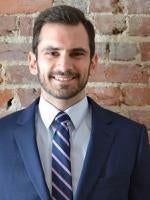The pervasive practice of nursing facilities administering unnecessary therapy treatments to their residents in order to receive the highest level of Medicare reimbursement has again resulted in a False Claims Act (“FCA”) settlement. On April 14, the Department of Justice (“DOJ”) announced that Saber Healthcare Group LLC (“Saber”) agreed to pay $10 million to settle allegations that its therapy services at nine of its nursing facilities led to the submission of false claims to Medicare. The case emphasizes DOJ’s commitment to protecting seniors in nursing facilities, as well as the tax dollars, which often reimburse their care through federally funded programs such as Medicare. The alleged acts by Saber track the fraudulent therapy practices that have led to other FCA settlements recently announced by DOJ.
This case was initially brought by three whistleblowers, Hope Wright, Laura Webb, and Deborah Edmonds, under the qui tam provisions of the FCA. The three whistleblowers learned of the fraudulent practices when Saber employed them as rehabilitation therapists and therapy managers. In accord with the FCA, which allows private citizens to bring qui tam lawsuits in the name of the United States Government, the three whistleblowers will split $1.75 million of the settlement.
According to the allegations in the whistleblower complaint in the case, Saber set general targets for its employees to make sure all patients in its nursing facilities could be billed at the highest level under Medicare, “Ultra High,” regardless of a patient’s actual need for therapy. To qualify as an Ultra High patient, a patient must require at least 720 minutes of skilled therapy per week, and a certain type of therapy must be administered five days a week. Once a patient was classified as Ultra High, Medicare reimbursed Saber the maximum daily rate for that patient. Therefore, the more patients that Saber could qualify as Ultra High, the more revenue they would receive from Medicare. Saber allegedly took several actions to ensure the maximum number of Ultra High patients, including consistently pressuring its therapy employees and facility directors and causing misreporting of non-therapy or unskilled time with patients as skilled therapy time.
This settlement, along with the other recent settlements for similar behaviors, will hopefully serve as a deterrent for therapy-related Medicare fraud moving forward. Not only do such practices put vulnerable patients at risk by subjecting them to unnecessary and often stressful therapy, but they also directly drain much needed taxpayer dollars from federally funded healthcare programs.




 />i
/>i

